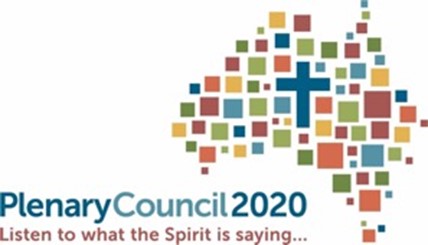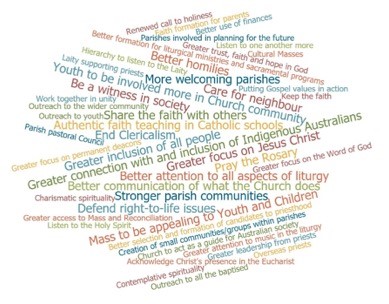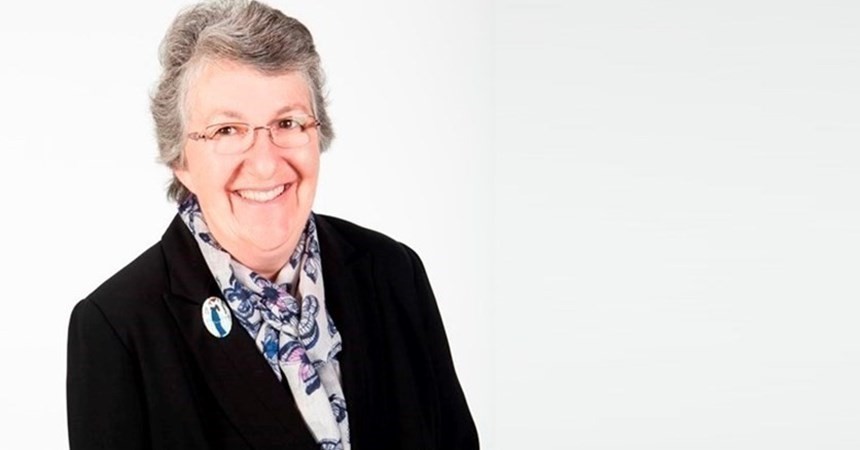 I believe that this is a great description for family-life. For me, it is just being there in the good times, and also in the not-so-good times. While we celebrated many birthdays on the weekend, we also remembered that Ada would have turned four on 22 July and she is not with us, having passed away when she was five-months old. As a family, we do not remain focused on the trauma; we acknowledge its presence while attending to the blessings that life has afforded us. I think we serve each other as a small community within a bigger Christian community, within a society.
I believe that this is a great description for family-life. For me, it is just being there in the good times, and also in the not-so-good times. While we celebrated many birthdays on the weekend, we also remembered that Ada would have turned four on 22 July and she is not with us, having passed away when she was five-months old. As a family, we do not remain focused on the trauma; we acknowledge its presence while attending to the blessings that life has afforded us. I think we serve each other as a small community within a bigger Christian community, within a society.
The scripture quote that goes with this week’s theme is the one that sits with our own Diocesan Pastoral Plan:
They devoted themselves to the apostles’ teaching and fellowship, to the breaking of bread and the prayers. Awe came upon everyone, because many wonders and signs were being done by the apostles. All who believed were together and had all things in common; they would sell their possessions and goods and distribute the proceeds to all, as any had need. Each day they met together in the Temple; they broke bread in their homes; they shared their food with great joy and sincerity of heart; they praised God and won the favour of all the people. (Acts 2:42-46)
As a family, we spend a good deal of time in preparing and breaking bread together, and I know that Allen and I continue to share all things in common with this ever increasing family. Our children, and now some of the grandchildren, are aware that our great joy and sincerity of heart comes from our belief in a God of love who sent Jesus into the world to show us how to live. We were reminded of this in the Gospel reading from Luke 10:25-37. I share with you the words of the Jewish Shema Prayer, which Jesus repeats before telling that great parable of the Good Samaritan:
There was a scholar of the law who stood up to test Jesus and said,
"Teacher, what must I do to inherit eternal life?"
Jesus said to him, "What is written in the law?
How do you read it?"
He said in reply,
"You shall love the Lord, your God,
with all your heart,
with all your being,
with all your strength,
and with all your mind,
and your neighbour as yourself."
He replied to him, "You have answered correctly;
do this and you will live."
So now for the words from the Plenary Council website that go with the theme of the fifth week:
How is God calling us to be a Christ-centred Church that is a joyful, hope-filled and servant community?
The fruits of what is discerned during this time will help shape the agenda of the first session of the Plenary Council in October 2020. This National Theme for Discernment is inspired by the voices of the People of God who expressed a yearning for the Church to be a sign of God’s kingdom for all people in Australia – to be able to see the Catholic Church in action, and to recognise Jesus. There was an expression of faith-filled hope in the capacity of the Catholic community to celebrate together, to show what it is to be a follower of Christ and to be loved unconditionally by God. There was a call to contemplate the Gospel call to be a servant Church for the good of all people in Australia – particularly for refugees and asylum-seekers and other people who are vulnerable or at risk. Many responses called for greater sharing of the story of the good works done by so many people and organisations of the Church. Some responses expressed a hunger for strong witness of faith, especially by priests, young people and female leaders in parish and school ministries.
Below are some of the topics that informed this particular theme, which was created through a combination of analysis, discernment and prayer.
- Acknowledge Christ’s presence in the Eucharist

- Authentic faith teaching in Catholic schools
- Be a witness in society
- Better attention to all aspects of liturgy
- Better communication of what the Church does
- Better formation for liturgical ministries and sacramental programs
- Better homilies
- Better selection and formation of candidates to priesthood
- Better use of finances
- Care for neighbour
- Charismatic spirituality
- Church to act as a guide for Australian society
- Contemplative spirituality
- Creation of small communities/groups within parishes
- Cultural Masses
- Defend right-to-life issues
- End clericalism
- Faith formation for parents
- Greater access to Mass and Reconciliation
- Greater attention to music in the liturgy
- Greater connection with and inclusion of Indigenous Australians
- Greater focus on Jesus Christ
- Greater focus on permanent deacons
- Greater focus on the Word of God
- Greater inclusion of all people
- Greater leadership from priests
- Greater trust, faith and hope in God
- Hierarchy to listen to the Laity
- Keep the faith
- Laity supporting priests
- Listen to one another more
- Listen to the Holy Spirit
- Mass to be appealing to youth and children
- More welcoming parishes
- Outreach to all the baptised
- Outreach to the wider community
- Outreach to youth
- Overseas priest
- Parish pastoral council
- Parishes involved in planning for the future
- Pray the Rosary
- Putting Gospel values in action
- Renewed call to holiness
- Share the faith with others
- Stronger parish communities
- Work together in unity
- Youth to be involved more in Church community

This is indeed a very long and diverse list and it reminded me of some words of wisdom which I read in Richard Rohr’s Daily Meditation last Wednesday (10 July) when the focus was on the prophets. Here are some of the words:
The spirit of goodness, rightness, beauty, and aliveness, Jesus said, is always moving. Like wind, like breath, like water, the Spirit is in motion, inviting us to enter the current and flow.
The problem is that we often stop moving. We resist the flow. We get stuck. The word institution itself means something that stands rather than moves. When our institutions lack movements to propel them forward, the Spirit, I believe, simply moves around them, like a current around a rock in a stream. But when the priestly/institutional and prophetic/movement impulses work together, institutions provide stability and continuity and movements provide direction and dynamism. Like skeleton and muscles, the two are meant to work together.
For that to happen, we need a common spirituality to infuse both our priestly/institutional- and our prophetic/movement-oriented wings. The spirituality will often be derived from the mystical/poetic/contemplative streams within our tradition. Without that shared spirituality, without that soul work that opens our deepest selves to God and grounds our souls in love, no movement will succeed and no institution will stand. . . It’s the linking of action and contemplation, great work and deep spirituality, that keeps the goodness, rightness, beauty, and aliveness flowing.
I am convinced that at the micro level of the family, our children, their spouses and our grandchildren know the deeper meaning behind our actions, which is more than the connection with our DNA or “blood” ties. Our action comes from a deep spirituality that is sensed beyond words.
We are asked to transfer this deep spirituality and action to and with those who connect with us as a people of faith. This is about genuine and authentic relationships that can work within the institution to give it direction and dynamism. This is the duty of all its members, for we are one family in Christ.

